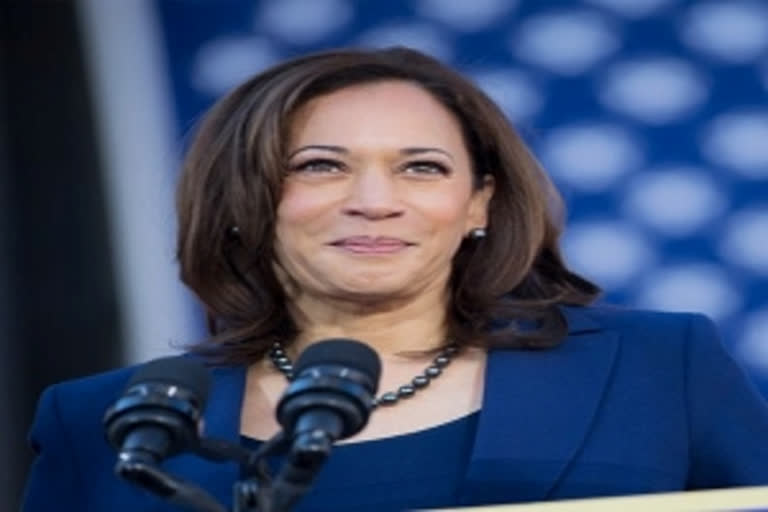New Delhi: In June of 2019 as the Democratic presidential candidates faced it off at the first primary debate Kamala Harris threw a forceful punch at Joe Biden.
“You know, there was a little girl in California who was a part of the second class to integrate her public schools and she was bused to school every day. That little girl was me,” said Senator Harris.
Harris seized the moment as she criticised Biden’s opposition to court-ordered busing of Black students into largely White districts, aimed at integrating American schools accused of segregating on race and socio-economic status.
Earlier hitting out at Biden for having invoked two Southern segregationists Democrat Senators James O. Eastland of Mississippi and Herman Talmadge of Georgia, to cite the ‘old-fashioned’ ‘civility’ of the 70s and 80s, Harris said, “I was actually very — it was hurtful to hear you talk about the reputations of two United States senators who built their reputations and career on the segregation of race in this country. And it was not only that, but you also worked with them to oppose busing.”
In January this year, Kamala Harris bowed out of the presidential contest but with her announcement as running mate for Democrat candidate Joe Biden, it is a monumental moment in American history.
Born in California to immigrant parents- father Donald Harris and mother Shyamala Gopalan who first met at UC Berkeley as graduate students active in the civil rights movement, Kamala Harris is now the first Black and South Asian American woman to run for the Vice Presidency on a major party ticket.
Her father Donald had immigrated from Jamaica. Her mother moved to the United States from Tamil Nadu as a young student at UC Berkeley.
Shyamala’s father PV Gopalan, an upright civil servant who fought corruption, supported his eldest daughter’s decision by digging into his retirement savings and allowing her to travel across the oceans to pursue her dream.
“My grandfather was one of the original Independence fighters in India, and some of my fondest memories from childhood were walking along the beach with him after he retired and lived in Besant Nagar, in what was then called Madras. He would take walks every morning along the beach with his buddies who were all retired government officials and they would talk about politics, about how corruption must be fought and about justice. They would laugh and voice opinions and argue, and those conversations, even more than their actions, had such a strong influence on me in terms in terms of learning to be responsible, to be honest, and to have integrity,” Kamala Harris recalled in an interview to Aziz Haniffa of India Abroad in 2009.
Kamala Harris has described her progressive grandfather as one of her favourite people in the world with whom she was a pen-pal for many years as he helped shape up her ideas of public service, in some interviews. But in public speeches, it is her mother whom Senator Harris has invoked regularly.
Her parents separated later when she was young and Kamala Harris along with her sister Maya was brought up by their mother Shyamala in Montreal.
“My mother, who raised me and my sister, was a proud woman. She was a brown woman. She was a woman with a heavy accent. She was a woman, who many times people would overlook her, or not take her seriously. Or because of her accent, assumed things about her intelligence. Now every time my mother proved them wrong. And because of who my mother was, what she believed, what she had the ability to dream was possible and then work to make possible, the fact that my mother never asked anyone permission to tell her what was possible is why, within one generation, I stand here as a serious candidate for the President of the United States,” Kamala Harris said in an earlier campaign the speech, video clip tweeted by her sister Maya following the big announcement to celebrate their mother.
With her biracial roots and liberal, progressive views, it would be interesting to see how Kamala Harris if elected Vice President, thus making her a potential Presidential front runner in 2024, deals with a majoritarian popular Hindu nationalist ruling party in India.
The Indo-American community may have filled up the stadium for the ‘Howdy Modi’ event In Houston to applaud and cheer the Trump-Modi bonhomie played out in public glare. But Kamala Harris’s strong Immigrant roots and Indian descent will be a strong reason for the South Asian American including Indo-American community to tilt for her.
Of the five Indo-Americans currently in the US Congress, all Democrats, with Raja Krishnamoorthy, Pramila Jayapal, Ro Khanna and Ami Bera in House of Representatives, and Kamala Harris in Senate, only Krishnamoorthy chose to attend the Houston event.
The others expressed their displeasure following the abrogation of Article 370 and communication blockade in Kashmir with Jayapal introducing a resolution last December, urging India “to end the restrictions on communications and mass detentions in Jammu and Kashmir” and “preserve religious freedom for all residents”.
Annoyed at the criticism, External Affairs minister, S Jaishankar, cancelled a scheduled meeting with members of the influential House Foreign Affairs Committee because of Congresswoman Jayapal’s presence in December 2019.
